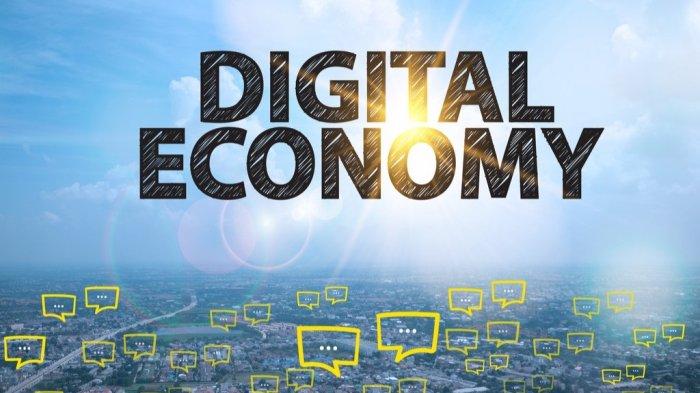G20 in Indonesia Momentum for Fair Utilization of the Digital Economy
By: Yogi Purbananda)*
The use of the digital economy must indeed be done fairly so as to create equality between G20 member countries, including in the national scope there must be justice that can be felt by MSMEs. So the G20 Summit is indeed the most appropriate moment to keep pushing it.
The development of information and digital technology which has recently become increasingly massive has forced almost all sectors to adapt, including the economic sector. Therefore, lately the digital economy has begun to be widely echoed and is predicted to be one of the most effective ways of trading.
But unfortunately not all countries are ready to do so due to differences in resources. Maybe for countries that have developed it will be very easy to take advantage of digitalization, but for countries that are still developing, this may bring its own challenges.
Therefore, the Deputy for Macroeconomic Coordination and Finance at the Coordinating Ministry for Economic Affairs, Iskandar Simorangkir, said that Indonesia as the presidency at the G20 Summit will ensure that economic digitization can be equitably beneficial and can support society at large.
According to him, the momentum of the presidency in the world forum is indeed very important to be able to immediately encourage the recovery of the national economy through digital transformation. It is undeniable that the use of the digital economy is a solution to be able to overcome the COVID-19 pandemic and accelerate economic recovery.
The reason is that with the COVID-19 pandemic, it automatically encourages people to adopt technology to meet their needs and at the same time help prevent the spread of COVID-19 cases. This is because restrictions on activity and mobility will inevitably encourage the digital economy to develop exponentially and make many countries create forums to increase the use of digital technology.
With the increasingly widespread development and use of technology, it will greatly impact the growth of new sectors such as e-commerce, fintech, edutech, healtech, agriculture and also online media. There is even data showing that the entire information and communication sector has become a sector that has resilience during the COVID-19 pandemic.
Iskandar also mentioned that in 2021 alone, the value of the digital economy in Indonesia increased by almost US$70 billion and was recorded as the largest value in the Southeast Asia region. Therefore, he believes that the growth of the digital economy will be able to continue to grow bigger considering the large spread of smartphones and information and communication technology infrastructure.
It should be noted that the number of cellular connections in Indonesia reaches 345.3 million or about 126 percent of the total population, which means that everyone has more than one cellular phone. For this reason, in order to support the digital economy to continue to grow, the government itself has provided support through the development of digital talent, including through the Pre-Employment Card, the national digital literacy movement for the community, digital talent scholarships for the professional level and the digital leadership academy.
The Deputy for Macroeconomic Coordination and Finance at the Coordinating Ministry for Economic Affairs also added that digital-based economic transformation must indeed be carried out comprehensively at every level of society, both in urban and rural areas.
If you really want to transform the digital economy very effectively, then it must exist at every level of society, both in business activities, social activities, and in the context of government activities in the context of accelerating digital-based government.
One of the steps that has also been given by the government is the holding of the Indonesian Digital Financial Economy Festival or FEKDI 2022, which is a side event of the G20 because it can be a forum to ensure that the digitalization process can provide benefits to the community and accelerate economic growth. The existence of a pandemic must be viewed with optimism, namely taking advantage of these opportunities to accelerate the nation’s economic growth.
On a different occasion, the former Minister of Trade, Muhammad Lutfi also said that Indonesia took advantage of the momentum as the G20 presidency to continue to support digital transformation, build consensus and encourage inclusive trade that is in line with sustainable development goals so that digital transformation must be fair, transparent and equal.
According to the former trade minister, digital transformation in trade is expected to encourage the achievement of several sustainable development goals, including poverty alleviation as well as decent work and economic growth. In addition, digital transformation itself can be a golden ticket for economic recovery after the Covid-19 pandemic.
He also added that digital transformation must be fair and offer equal opportunities and equitable distribution of benefits to all stakeholders, including micro, small and medium enterprises (MSMEs), because they are the backbone of the global production system that contributes to employment and the number of businesses. . In addition, MSMEs are important engines of innovation, growth, job creation and social cohesion in G20 member countries.
The G20 Summit itself is indeed a very appropriate momentum, especially for Indonesia as the presidency in the forum because it will continue to encourage the use of the digital economy fairly, both for small and large entrepreneurs in the country or justice in the context of member countries.
)* The author is a contributor to the Press Circle and Cikini Students
